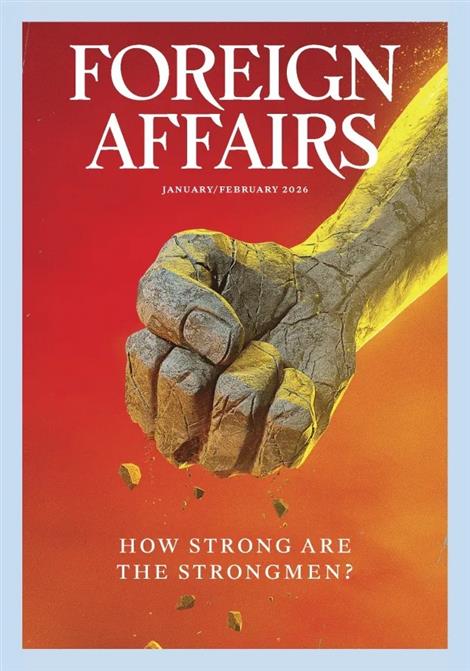


The Price of American Authoritarianism
After Trump’s 2024 reelection, much of the U.S. establishment remained calm, trusting democratic resilience after his first term and January 6. Yet The Price of American Authoritarianism raises a warning: democratic decline has real costs, and the open question is what forces—institutions, norms, civic action—can still reverse it.
The Illiberal International
Authoritarian cooperation is reshaping the global order. After the Cold War, a U.S.-led system spread liberal democracy unevenly. Today, momentum has shifted: authoritarian and illiberal governments, antisystem parties, and supportive private actors coordinate across borders, share narratives, and provide material backing, accelerating global democratic decline.
The Stagnant Order: And the End of Rising Powers
This essay argues that the historical cycle of rising powers reshaping global order is breaking down: demographic stagnation and economic slowdown mean no country today is likely to challenge the status quo.
The Return of the Energy Weapon
This piece examines how energy — especially control over fossil-fuel supply or energy infrastructure — is again being used as a strategic weapon by states, influencing global power dynamics and international security.
The Weaponized World Economy: Surviving the New Age of Economic Coercion
This article describes how states and major players use economic relations as strategic weapons—for example, through sanctions, export controls, or financial blockades. It shows how companies and governments must adapt to this form of power in order to remain capable of acting.
The Real China Model: Beijing’s Enduring Formula for Wealth and Power
This article analyzes China's model of economic growth and power projection: not just a classic market economy or planned economy, but a hybrid system that combines technological control, state support, and global expansion — and asks the question: Can this model be replicated?
Dispensable Nation: America in a Post-American World
This article argues that Donald Trump’s political success rests on portraying the United States as weak and failing, yet his foreign policy overestimates American power. Believing unilateral action can still compel others to submit, Trump’s approach reveals a striking contradiction between rhetoric and strategy.
Beware the Europe You Wish For: The Downsides and Dangers of Allied Independence
By NATO’s 2024 Washington summit, 23 of 32 members were meeting the alliance goal of spending two percent of GDP on defense, a sharp rise from just six in 2021, reflecting U.S. pressure on Europe to boost its security contributions.
The Price of American Authoritarianism
After Trump’s 2024 reelection, much of the U.S. establishment remained calm, trusting democratic resilience after his first term and January 6. Yet The Price of American Authoritarianism raises a warning: democratic decline has real costs, and the open question is what forces—institutions, norms, civic action—can still reverse it.
The Illiberal International
Authoritarian cooperation is reshaping the global order. After the Cold War, a U.S.-led system spread liberal democracy unevenly. Today, momentum has shifted: authoritarian and illiberal governments, antisystem parties, and supportive private actors coordinate across borders, share narratives, and provide material backing, accelerating global democratic decline.
The Stagnant Order: And the End of Rising Powers
This essay argues that the historical cycle of rising powers reshaping global order is breaking down: demographic stagnation and economic slowdown mean no country today is likely to challenge the status quo.
The Return of the Energy Weapon
This piece examines how energy — especially control over fossil-fuel supply or energy infrastructure — is again being used as a strategic weapon by states, influencing global power dynamics and international security.
The Weaponized World Economy: Surviving the New Age of Economic Coercion
This article describes how states and major players use economic relations as strategic weapons—for example, through sanctions, export controls, or financial blockades. It shows how companies and governments must adapt to this form of power in order to remain capable of acting.
The Real China Model: Beijing’s Enduring Formula for Wealth and Power
This article analyzes China's model of economic growth and power projection: not just a classic market economy or planned economy, but a hybrid system that combines technological control, state support, and global expansion — and asks the question: Can this model be replicated?
Dispensable Nation: America in a Post-American World
This article argues that Donald Trump’s political success rests on portraying the United States as weak and failing, yet his foreign policy overestimates American power. Believing unilateral action can still compel others to submit, Trump’s approach reveals a striking contradiction between rhetoric and strategy.
Beware the Europe You Wish For: The Downsides and Dangers of Allied Independence
By NATO’s 2024 Washington summit, 23 of 32 members were meeting the alliance goal of spending two percent of GDP on defense, a sharp rise from just six in 2021, reflecting U.S. pressure on Europe to boost its security contributions.
